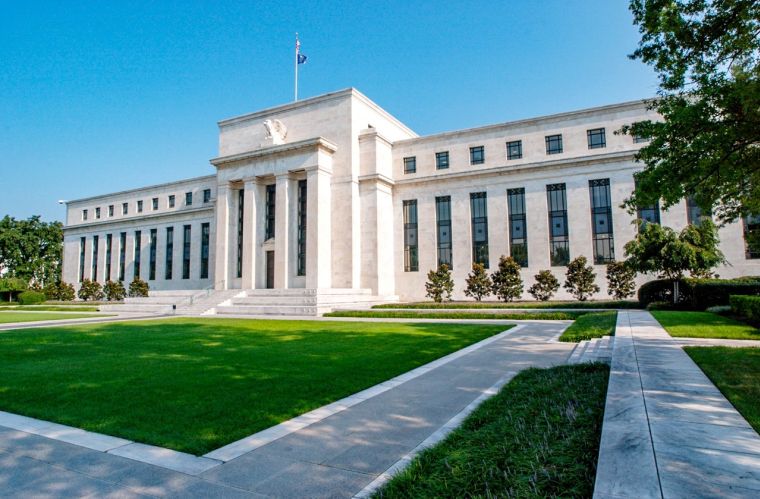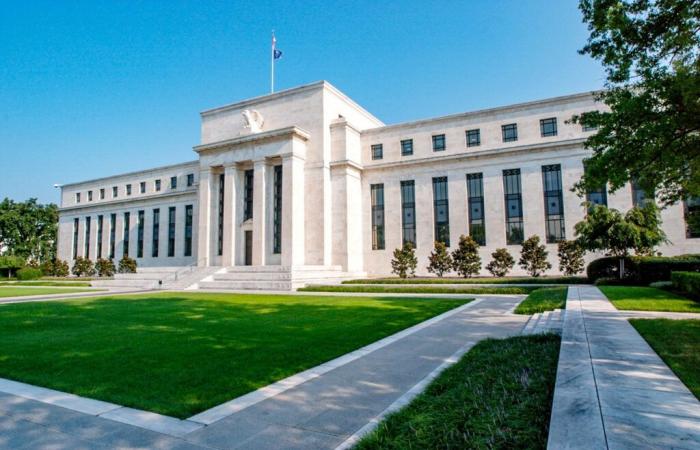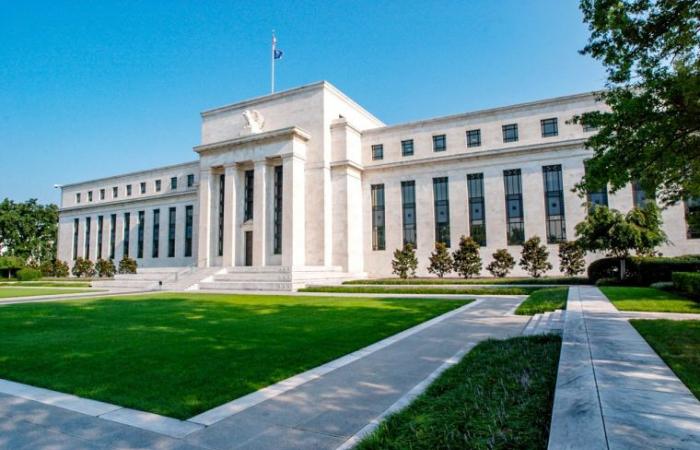
The Fed headquarters in Washington. (Credits: Federal Reserve)
Will the American Federal Reserve, guardian of the monetary temple, fall under the control of Donald Trump? The Fed has recently stepped up to defend its sacrosanct independence. According to Jean-Paul Betbeze, the real power will not be in the White House.
On December 18, will the Fed – the American central bank – lower its rates or wait, even threatening to raise them? Will it continue its strategy with two objectives: price stability and maximum employment in the medium term, taking its decisions based on current figures, or take more into account the technological revolution in progress, assuming that it will rebound productivity? The ChatGPT revolution will in fact destroy jobs to create more efficient ones, in the midst of a trade battle with China. The Fed should therefore continue to ease rates.
But Donald Trump announced that he wanted to tax imports by 10% and those from China by 60%, which is inflationary. It accentuates the Biden policy of repatriating activities deemed strategic to the United States. He will not subsidize these repatriations, unlike his predecessor who widened the budget deficit by claiming to fight against inflation with his Inflation Reduction Act, a curious name for protectionism. Crassly, Trump wants to tax all importers, whom he considers subsidized, especially Chinese: they do not work in a market economy. American prices will rise, while waiting for internal production to take over. And that’s not all: Trump also wants to expel illegal immigrants and restrict entry into the country. This will weigh on activity, particularly on services, and will push up wages. So the Fed must stop easing rates!
Will the Fed succeed in remaining independent?
Powell out? Hence the question: “Will the next presidency of Donald Trump weigh on the independence of the FED?” The one that markets and economists ask themselves. The one that journalists ask Joe Powell, the Chairman of the Fed: will he resign? “No” he replies. Will he have to leave? “Contrary to the law”. Everyone, however, noticed that Joe Powell only thought of that in his last presentation, as he insisted that the Fed is independent. Data dependent yes, not Trump dependent!
In fact, the masters of this game are neither Powell nor Trump, but long-term rates. When inflation decelerated to 2.4% per year in September, the Fed lowered its short-term rates to 4.75% in November, after 5% in September, with the idea of continuing. But here is inflation at 2.6% in October and long-term rates which exceed 4.4%, compared to 3.6% in mid-September. The vigilantes wake up.
Does Trump want to clash with Powell, in office until January 2028? Does he want to make his life impossible with a shadow President who would oppose him? He surrounded himself with formidable supporters: Homan at Immigration, Rubio at the Secretary of State. But…
Don’t forget Elon Musk
But that would be forgetting Elon Musk, Tech and Bitcoin, at more than $91,000 compared to $53,000 in September. What drives them all is the idea of a policy of deregulation, of overhauling public organizations, with fewer standards, taxes and civil servants. More competition, less taxes and inflation.
A new liberalism would arrive, with Artificial Intelligence at the helm. It would no longer be Biden’s Keynes who protects, but Schumpeter’s creation-destruction, certainly also protected by customs duties, but in its infancy. This is about helping future global winners: after GAFAM, NAMAA (Nvidia, Apple, Microsoft, Alphabet, Amazon).
Trumpflation: a transition to conquer the world?
Trumpflation would be temporary. It has not passed into people’s minds, since the inflation forecast for one year drops to 2.9% in October. Above all: on December 18, the Fed will say whether it continues its rate cuts, and therefore how it integrates the Trump program. Will it be “traditional” or will it embark on the current revolution, accepting more inflation, to conquer the world? It must then continue its declines: Trumpflation is a necessity. After Apple, Nvidia? Yes, says the stock market. Be careful, say long rates.








